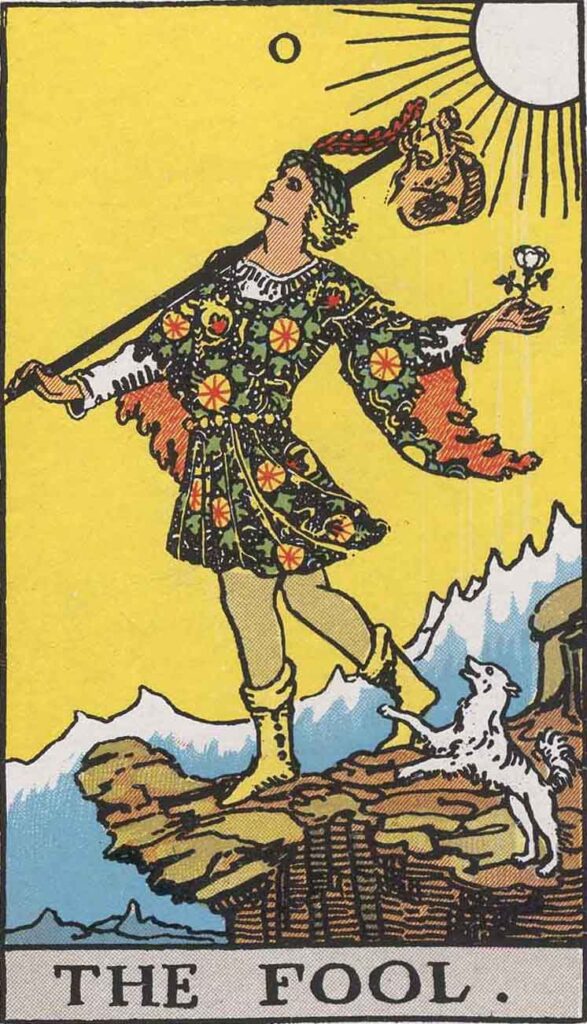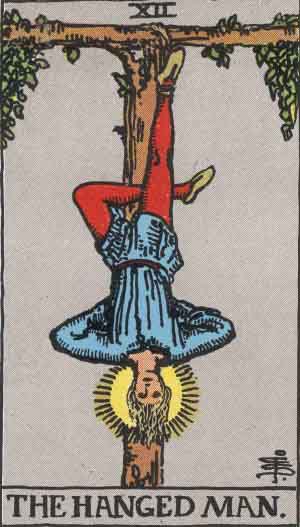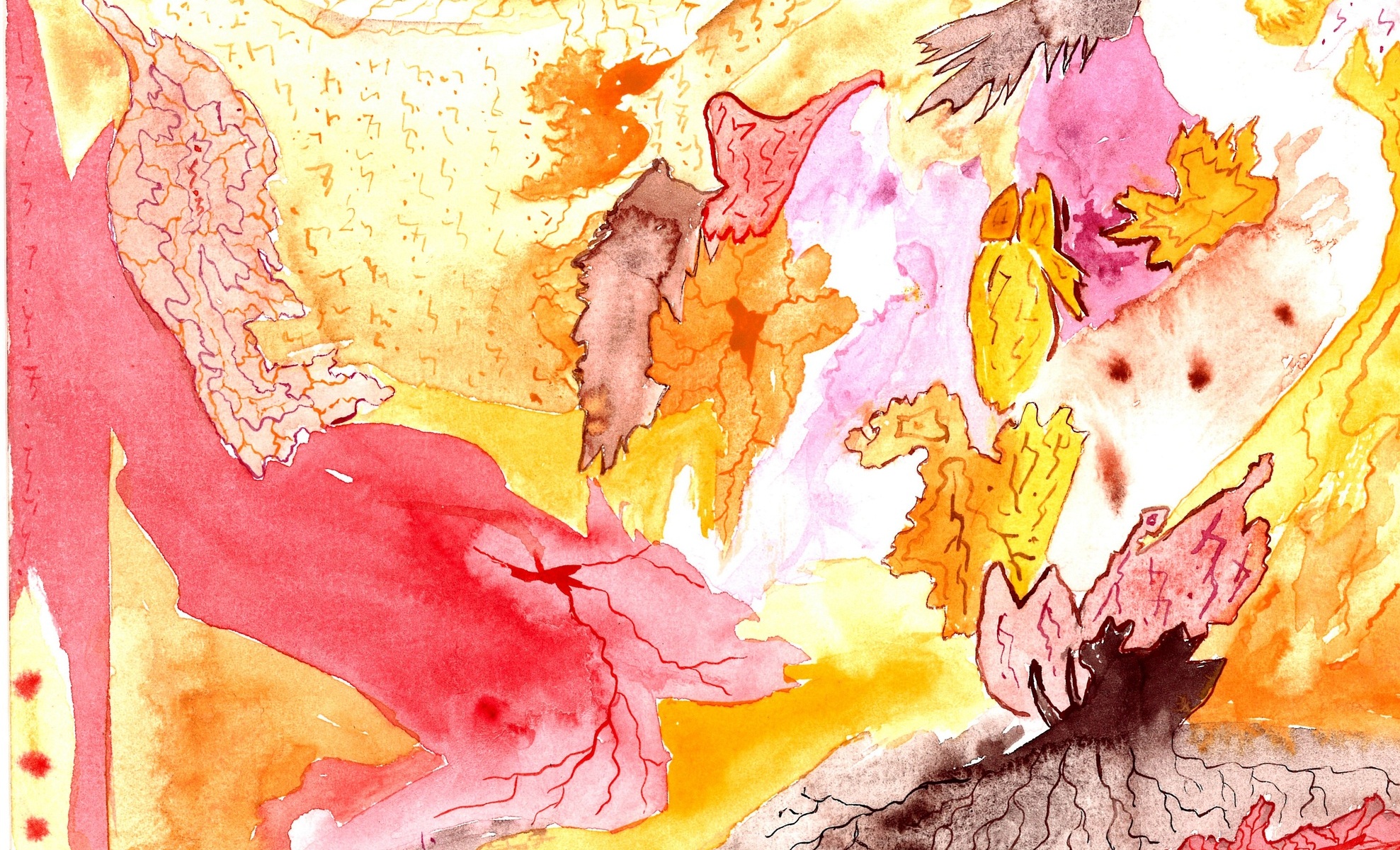

Let’s talk today about the principle of play. What does it mean to play with life, and how do we do that? As the Dutch cultural theorist Johan Huizinga suggested, play is by no means a facile undertaking. Quite the contrary. Remember when children are playing. They have fun and are super serious at the same time. They draw the game with great gravitas into their present physical reality. There are two cards in the Tarot that have an interesting relationship to the principle of play and to each other. Some read the fool and the hanged man as one and the same figure, though, depicted in two different moments in life. When we look at the iconography of the Rider-Waite Tarot and the Tarot de Marseille, we see that their physiques indeed look similar to each other. But one is depicted as a jolly person embarking enthusiastically and recklessly on their new journey, whilst the other one is presented as a human hung with one leg on a tree, with tied hands, unable to unhook himself.
The fool – the Tarot card number 0 – symbolizes infinite possibilities, the all, the everything and the nothing, the embracing of new experiences, the openness to the road and to the world. The fool has made no right or wrong decisions yet, all the future lies in front of him. The hanged man, on the other hand, seems to have found himself in trouble. He is stuck, unable to move, hanging upside down and forced to see the situation from another angle. The perspective-change gifts him with enlightenment. We see a halo around his head.
The Fool and the Hanged Man as the Same Character
If the fool is the naive adventurer, young and his identity yet undeveloped, which allows him to embrace life’s many faces, the hanged man has learned to master the quality of shifting perspectives inwardly. He got acquainted with the mystery of variety through his tricky upside-down situation. Both figures represent the principles of play, the relational character of dealing with life. Play refers here to nothing else but staying in relationship with life also then when it offers us its manifold and unexpected faces. It is the fool’s quality of openness that enables the hanged man to use the unpleasant situation to his own advantage and choose to shift his mind.
The playful quality of the Tarot’s fool is a crucial resource for any actor. The theater director and theorist Augusto Boal introduces an emotion exercise for acting in his book “Games for Actors and Non-Actors”. He explains, that when an actor plays a character, say Hamlet, and Hamlet smiles, the actor has to choose one particular smile from the many ways of smiling, the one that is the fittest for Hamlet. In order to be able to do that, the actor needs to be disidentified enough from their own habit of smiling. “To make this choice possible, one has to start by destroying the wall of mechanisms, which is the actor’s ‘mask'”.* The infinite ways of smiling, laughing, crying, screaming, etc. are the actor’s best friend, and in order to meet their best friend they need to pick and choose one at a given moment, and then pick and choose one again at another moment, and then pick and choose again, and then again, and again, and again… The actor stays playful. With life.
We can play with life, whether we are sprinting on fresh paths with young feet or if we are hanged on a tree with one leg. We can change perspective inwardly and outwardly.
Play with life, dear ones,
Love,
<3
Augusto Boal, Games for actors and non-actors, London 2002, S. 32.
* “Destroying” might be a harsh word here, but it simply refers to disidentifying with one’s own habit enough, so that we can wear the face of something else.
